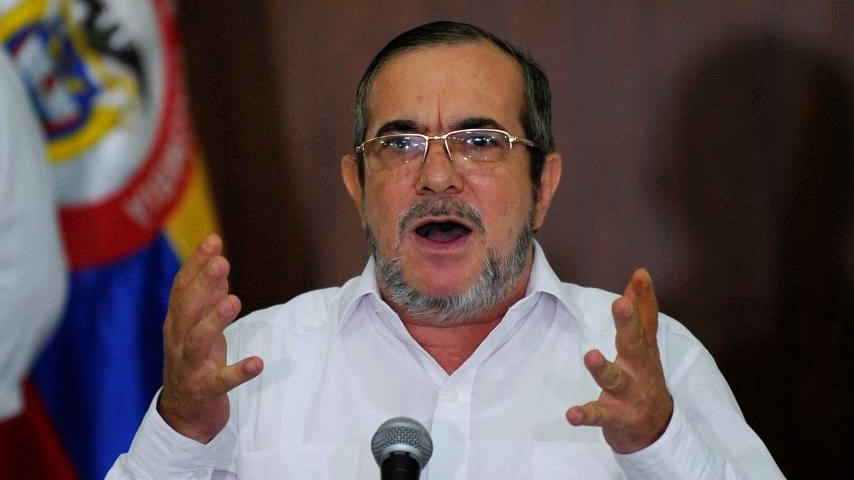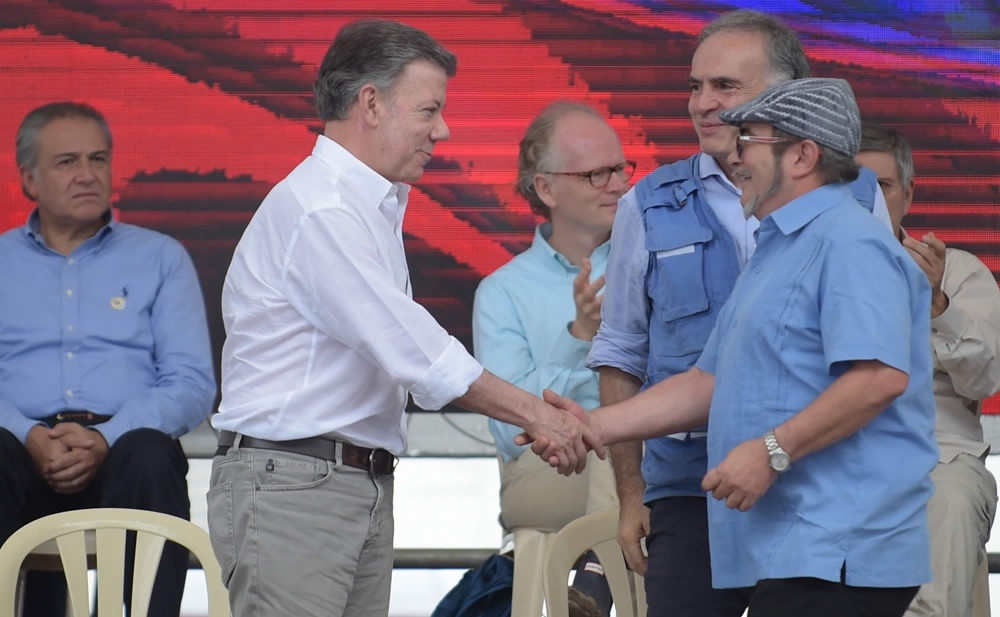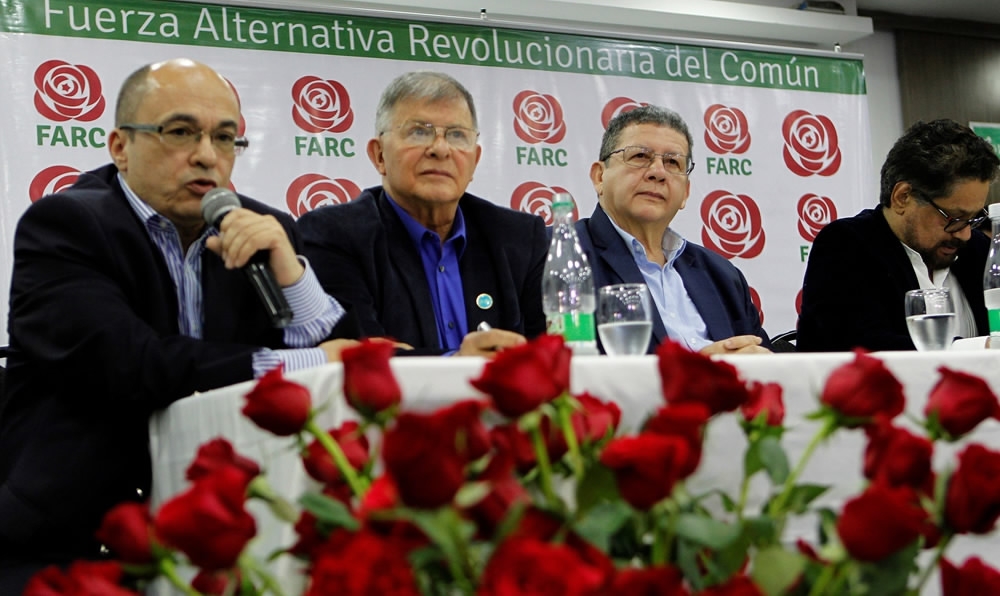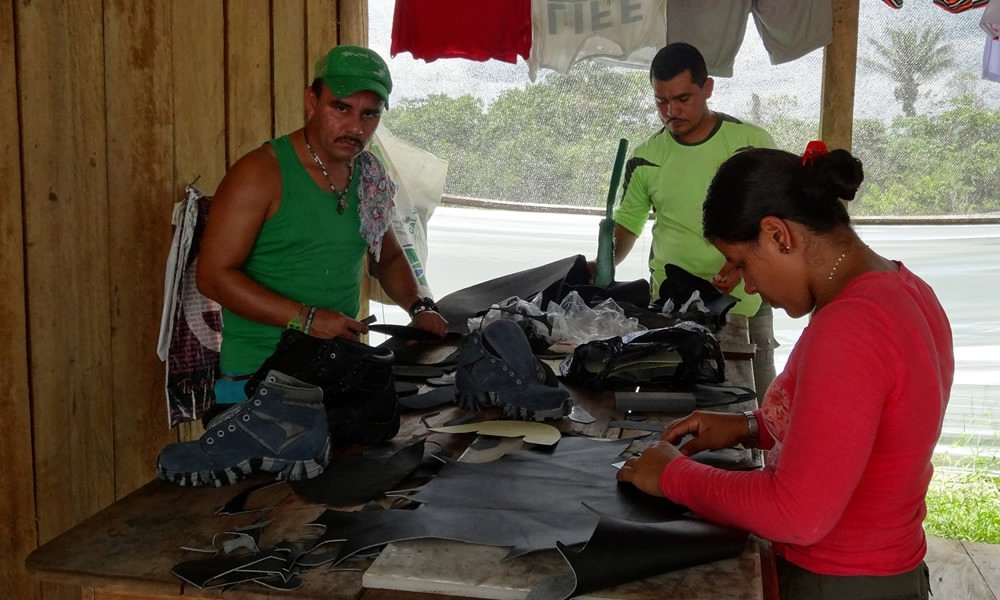
Politics
13:24, 02-Nov-2017
Colombia's FARC fields ex-rebel chief as presidential candidate
CGTN

Colombia's FARC – a political party formed from a former rebel group following a historic peace deal – said Wednesday it was fielding its leader as a candidate in next year's presidential elections.
Rodrigo Londono, 58, better known by his nickname "Timochenko," will be the party's choice for the polls, a FARC spokesman told a news conference.
The first round of voting is scheduled for May 2018.

FARC leader Rodrigo Londono (R), Colombian President Juan Manuel Santos (L) and the UN Secretary-General's Special Representative for Colombia and Head of the UN Mission to Colombia, Jean Arnault (C) attend the final act of abandonment of arms and its end as an armed group in Mesetas, Colombia, June 27, 2017. /AFP Photo
FARC leader Rodrigo Londono (R), Colombian President Juan Manuel Santos (L) and the UN Secretary-General's Special Representative for Colombia and Head of the UN Mission to Colombia, Jean Arnault (C) attend the final act of abandonment of arms and its end as an armed group in Mesetas, Colombia, June 27, 2017. /AFP Photo
Timochenko was previously the supreme commander of the Revolutionary Armed Forces of Colombia – FARC in Spanish – a guerrilla group that for half a century battled the government and right-wing paramilitaries. The conflict, marked by kidnappings and disappearances, left some 260,000 people dead, 60,000 unaccounted for and seven million displaced.
The FARC rebels agreed in 2016 to a landmark peace deal with the government. It disarmed and in September transformed itself into a political party, keeping the same initials but changing its official name to the Common Alternative Revolutionary Force.
Just ahead of the political FARC's founding congress in August, Timochenko – who suffered a temporary arterial brain blockage in July, impeding his speech – had ruled out the party putting forward a presidential candidate next year. But the party named Timochenko its leader, and with Wednesday's announcement showed it changed its mind, and intended to have him try to succeed current President Juan Manuel Santos, who is ineligible to stand for re-election.

Members of the political party FARC present their candidates in Bogota, Colombia, November 1, 2017. /Reuters Photo
Members of the political party FARC present their candidates in Bogota, Colombia, November 1, 2017. /Reuters Photo
Timochenko was not present at the news conference declaring his candidacy. He stayed away for "health reasons," a FARC official, Marco Calarca, told AFP, but added that the party leader had a medical green light to contest the elections.
Instead the FARC chief's Twitter account posted the message: "For landless peasants, young people with no opportunities, we are launching our candidacy."
The FARC party also put forward other prominent members as candidates for congressional elections in March 2018. They included Ivan Marquez – a former commander and party spokesman who declared Timochenko's candidacy – and three former negotiators who saw through the peace deal.

Former FARC rebels work in a shoe workshop in a city built by them in Caqueta, Colombia, October 25, 2017. /Reuters Photo
Former FARC rebels work in a shoe workshop in a city built by them in Caqueta, Colombia, October 25, 2017. /Reuters Photo
The FARC, however, has a negative image for the majority of Colombians, according to surveys, making its election bids uncertain.
An analyst on Colombia's conflict, Victor de Currea Lugo, said the FARC "knows they are not going to win (the presidential election), but they know they can strengthen their political movement" by taking part.
Carlos Arias, another analyst and a professor, said Timochenko's candidacy was part of "a positioning strategy" to gauge the party's electoral support and possible political alliances.
14964km
Source(s): AFP

SITEMAP
Copyright © 2018 CGTN. Beijing ICP prepared NO.16065310-3
Copyright © 2018 CGTN. Beijing ICP prepared NO.16065310-3